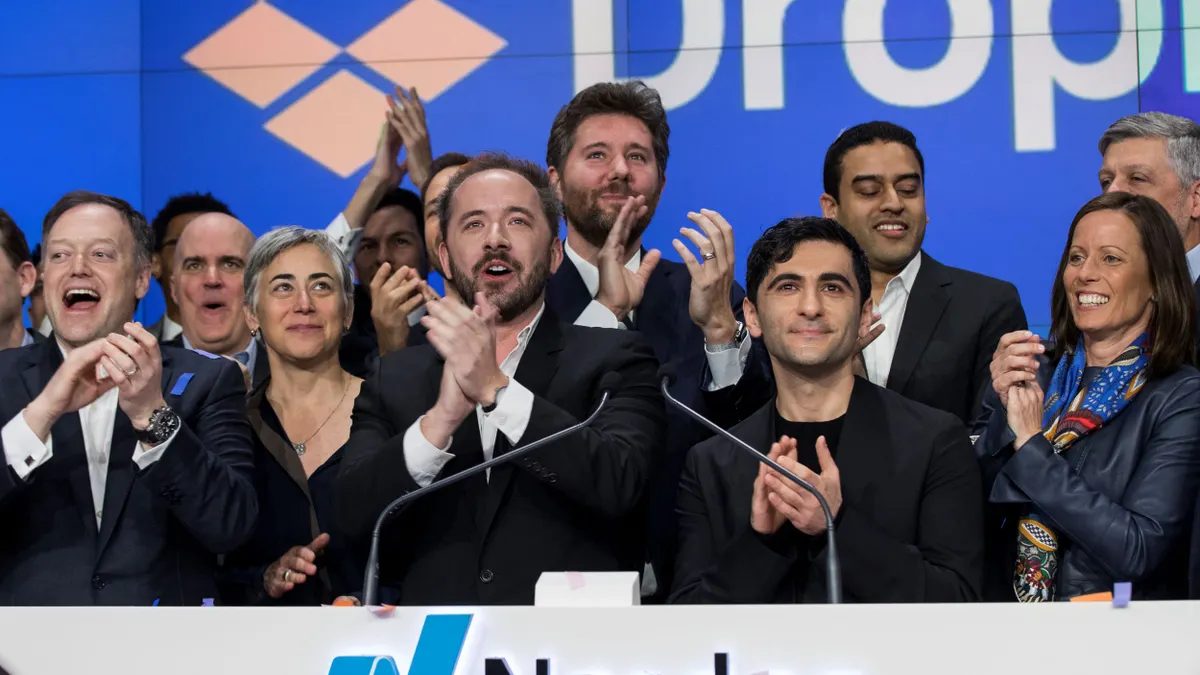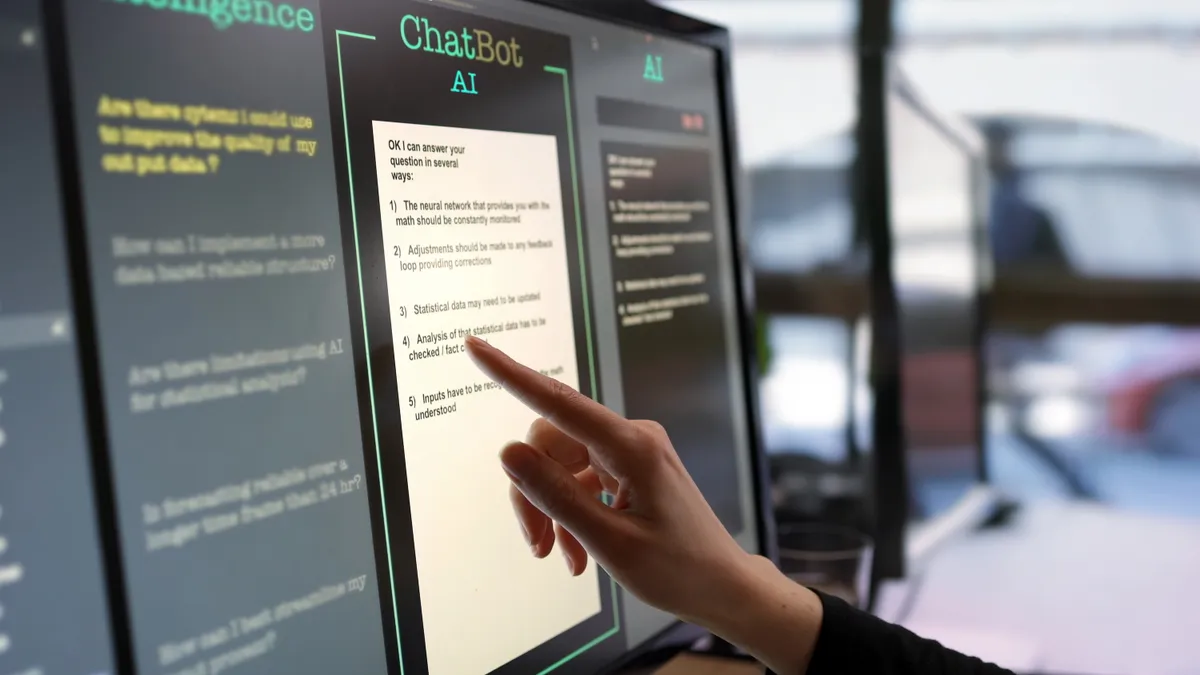Despite an economic downturn, runners in the AI race are still going at a sprint — and while CFOs need to ensure they are carefully considering all of the technologies’ risks and potential negatives, the biggest risk for financial leaders is in “standing still,” said Michael Bayer, CFO of Boston-based cloud storage provider Wasabi Technologies.
Taking on a more risk-forward mindset when it comes to such emerging technologies is critical for CFOs, who need to ensure they are placing their companies at the top of the coming “data wave,” a similarly transformative phenomenon as the internet and mobile waves of the past decades, Bayer said.
“I think we are in the very early stages of what this broad term of AI will unlock for us all,” Bayer said in an interview. “It's perhaps more transformational than all of those other things that preceded it, and I think it's a really exciting time to be at that sort of intersection point of finance and information.”
Getting ahead of the data wave
To enter this coming data wave on a high, CFOs need to ensure they have steady, trusted relationships with other key executives in the C-suite, such as the Chief Information Officer, a relationship that needs to evolve as businesses enter the new, post-AI world.
“It has to be mature and transparent, and you need to think together about where all this is heading because neither one of you has the sole world view,” Bayer said of how these two executives need to work in tandem. “It's got to be collaborative.”
Wasabi itself does not presently have a dedicated CIO, Bayer said, but the company is “probably getting to the size and scope where we need someone to be a holistic thinker that's a CIO,” he said. Oftentimes, however, such responsibilities fall under the remit of the CFO, he said, making it critical for such finance leaders to grow comfortable with new technologies quickly.
Bayer himself comes from a tech-forward background, having served in Wasabi’s top financial seat for four years soon after the company’s founding in 2017. Prior to joining the Boston, Massachusetts hot cloud storage provider, Bayer — who describes himself as a serial tech CFO — served as finance chief for various early-stage technology companies, including iZotope Inc., HealthWyse and Mobiquity Inc., according to his LinkedIn profile.
While the idea of “data as the new oil” has been around for some time, this trend has only begun to accelerate with the emergence of generative AI solutions, which have been fast adopted by some and which have led others to express concerns about data privacy, ownership and security. For his part, Bayer is excited to see how generative AI tools will impact or change the CFO role.
However, rushing to experiment with such uncharted technology can be a hard ask for the “hard-nosed analytical CFO,” he said. CFOs are constantly caught between “how to hit the accelerator” on the business and managing the risk of the business, Bayer said: Experimenting with generative AI comes with a host of new risks alongside its potential to unlock the value of a company’s data, such as a perceived job threat to one’s employees or increased cybersecurity or data privacy risks.
This is part of the CFOs’ day-to-day now: thinking about “what are the opportunities and the risks of proceeding in this new world?” Bayer said.
While CFOs can often do deep financial analysis to make sure they are getting a decent return on their investment when implementing new technologies, the nascent state of generative AI and like tools makes this more complicated — “all of financial analysis in the world was not going to tell the original backers of OpenAI what it was going to be worth to launch a model,” Bayer said by way of example.
CFOs can work to stay on top of this by “using the relationship to your CIO, your CMO, your CEO, to help you figure out where the hotspots are, and make sure that you're not expert enough but knowledgeable enough in all the areas to have a conversation,” Bayer said. “And also, to help your colleagues with, ‘Hey, this is an area I don't really understand, but maybe you should be diving into this, and help me with it.’”
Strengthening the CFO, CIO relationship
A strong relationship between the CIO and CFO can contribute to more effective results when it comes to technology spending and implementation, CFO Dive has previously reported. Sturdy CIO-CFO relationships lead to “measurably better digital spending outcomes,” Gartner analyst Emily Riley said earlier this month during a company conference, noting digital investments tend to be complicated, span different business functions, and therefore require higher levels of collaboration.
To make the best decisions here, CFOs also need to ensure they are “deeply informed” about the current state of technology, as are their colleagues in the C-suite, Bayer said.
Currently, when it comes to newer technologies like generative AI, CFOs may “get as well informed by your kids as you are by your CIO,” Bayer said.
“The intern, the college junior, that's working on a data analysis project, that is learning all the new tools, probably has just as much to add as your CIO when it comes to the adoption of these new tools that are coming out,” Bayer expanded. “And that's not to say that CIOs aren't on top of this, but it's such a new framework. It's different today than it was six months ago.”
Additionally, as well as AI, CIOs are also occupied considering things like cyber risk, cloud adoption and data democratization, with AI adding to an already full plate, Bayer said. A collaborative relationship between key members of the C-suite is essential to approaching how these technologies can best aid the business.
“I think that relationship (between) the CFO and CIO has to be tight enough so that you can have this open dialogue about where you're headed, and then make the decision about what system you're going to deploy next week,” Bayer said.





















